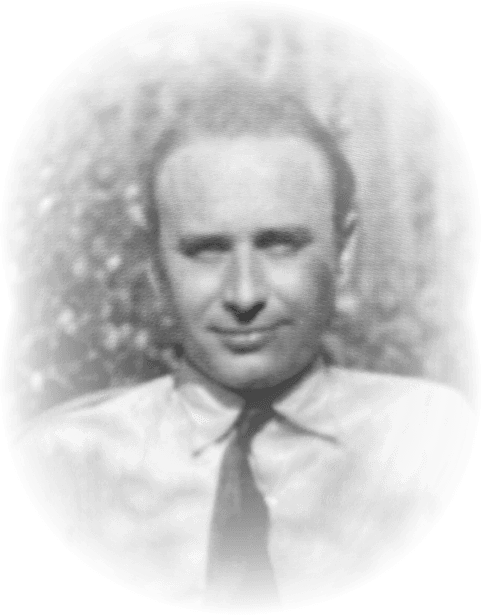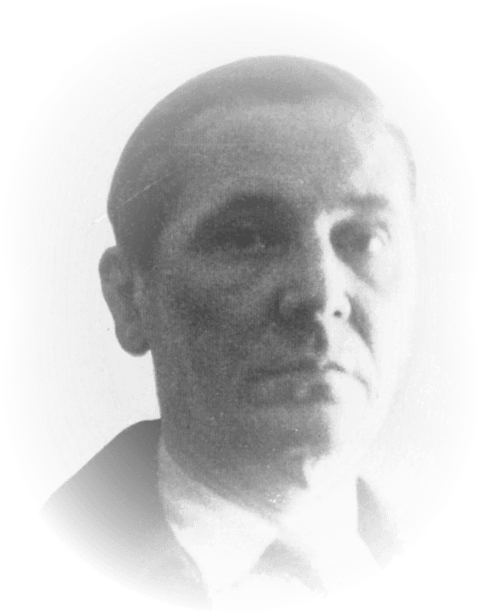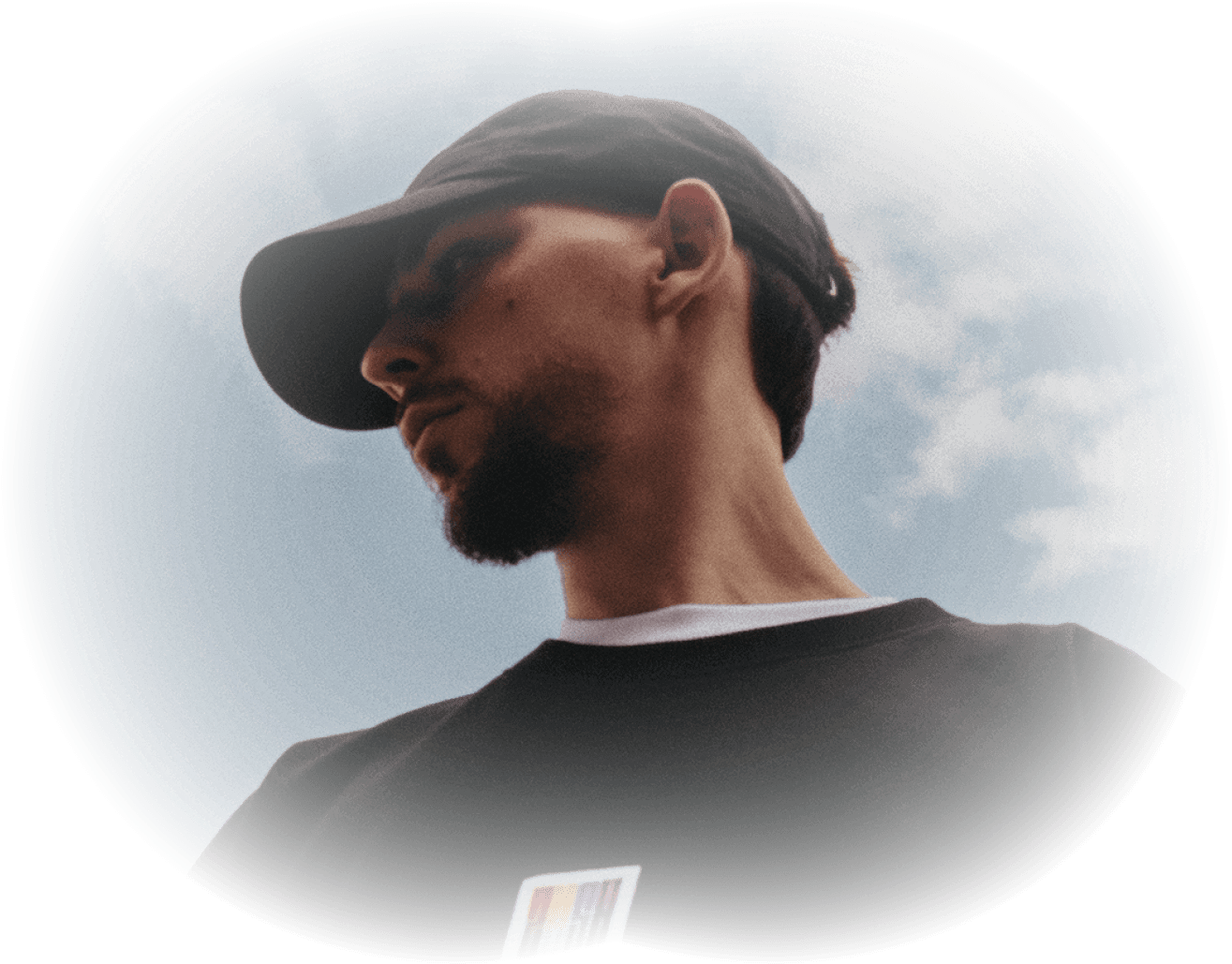
In 1949, the first poetry collection by the 45-year-old owner of a textile design atelier Yuri Odarchenko was published in Paris. It was called Quite A Day (Denyok).
Yuri Odarchenko’s poems are bold and original, unlike anything else. They struck and surprised me: a new authentic poet suddenly appeared out of nowhere.
(poet Georgy Ivanov)
The boy is running down the path,
Trundling a hoop.
He has white stockings on his feet,
Trundling a hoop.
The sun is streaming through the leaves,
Gilding the sand.
Someone’s casting a big shadow,
Darkening the sand.
The boy is watching, smiling:
A raven on a bough,
And beneath him, hanging, swaying,
Someone on a bough.
It is possible to imagine a world where Yuri Odarchenko meets his peers — Daniil Kharms and Alexander Vvedensky, and fights on the left wing as part of The Association for Real Art... But Odarchenko was whisked away to France as a boy. He graduated from the Ecole des Beaux-Arts in Paris and opened his own textile design atelier, fulfilling orders from major French fashion houses.
Despite his seemingly prosperous life, he created scary poems and drawings that hung in his studio, suffered from alcoholism and the monkey on his back. And later came the phantasmagorical stories with a fatal outcome and his suicide.
He lived in two worlds: in ours, the ordinary world, and the world of subhuman beings, and sometimes these two worlds would merge, and the conversation with him would become genuinely frightening.
(poet Kirill Pomerantsev)
I will arrange the words.
In the best and finest order.
These will be the words
That make you run for your life.
As Kharms said, a poem, if thrown at a pane of glass, should break the glass. Odarchenko’s thrown poem shatters an ordinary life.
But you can also hear the music, against all odds — the luminous music that saves no one and sometimes only comforts (poet Yuri Ivask )
The divine promise of
Immortality you hear in it.
And there is no name for your languor
Before the beauty consciousness.
Yuri Odarchenko was haunted by nightmares. According to his friend, when Odarchenko rented a hotel room, he could describe the life of elemental creatures beneath the hotel’s foundation. On top of a morbid alcohol addiction — his family would literally lock Odarchenko in his apartment with no clothes on — he became addicted to potassium bromide, which was prescribed to calm him down — and would drink a liter a day instead of three spoonfuls. Not to mention the excruciating migraine...
On July 25, 1960, Yuri Odarchenko was found by the gas stove with a rubber tube in his mouth.
The wistful boy or the genius
I never talk about myself.
But I’ll leave you a memento
My anguish kaleidoscope.

One could unmistakably recognize the poet in Vladimir Smolensky.
...and his pensive and pale face, the timbre of his voice, his whole romantic countenance delighted me. (writer Zinaida Shakhovskaya)
He continued the Romantic tradition of the poet becoming the battleground between the high and the low, the earthly and the heavenly.
He did not spare himself: he drank a lot, was a chain-smoker, did not sleep at night, wrecked his own life and the lives of others... He fell in love permanently, suffered, dramatized, threatened suicide, wrote verses from the dramas of his life, thought he lived exactly by the pattern of Blok and Andreev and in fact lived rather like Apollon Grigoriev, thinking a poet shouldn’t even dream of living otherwise. (writer and memoirist Nina Berberova)
The poet was born on a noble family estate on the river Don. After the revolution, some people came to the house with a portico of four white columns, dragged out his father, the head of the gendarme department, and shot him in front of his family. Smolensky would remember the house, his father, and his mother all his life.
Close your eyes, in a dreamlike vision
Your ruined house will arise.
Four white columns
Above the roses and the pond.
And the swallows’ slanted wings
Strike the heavenly shield,
And Russia is beyond the balcony,
As iambus sounds solemnly.
This house was built a while ago,
Long ago it was destroyed,
But as tall and lean as ever,
My father steps out onto the balcony...
Smolensky joined the Volunteer Army and, after the defeat, evacuated with its remnants from Crimea to Constantinople. Then — two years in Tunisia and the first poems, his move to Paris. The young Parisian poets were divided between two masters — Georgy Ivanov and Vladislav Khodasevich. Vladimir Smolensky found himself closer to Khodasevich.
Smolensky’s subtle, full of genuine feeling, cleverly restrained poems... are very witty, graceful — I would even say, incredibly witty for our times. His taste is always (or almost always) impeccable. (poet Vladislav Khodasevich)
First, he was an unskilled laborer, then a student at the Academy of Higher Commercial Studies, and then an accountant in a liquor store. Counting bottles, Smolensky used to say. But always and above all — a poet.
Smolensky had a sonorous, beautiful voice. He recited in a special manner — slowly, in chant. Russian Paris loved Smolensky very much. And that evening, they refused to let him go and asked for more poems. The poet kept reciting. The applause was endless. (poet Tamara Velichkovskaya)
When the war came to France, Smolensky left to work in a watch factory in Arras, but then he decided there was no point in hiding from death and returned to the capital on the last train along with the crowds of refugees. He found Russian literary Paris deserted: many had died during the Nazi occupation, and the survivors had left.
Yet Vladimir Smolensky continued to dream of Russia and write about the country he hated but could not help but love.
Write of the death of your only country,
Write of the death of her soul,
Of your one and only, one and only country,
In your dying hour, write.
He died of throat cancer, which first took his voice and then — his life.
Hmirov|Hmirov

There is a beggar on the street,
Can’t look him in the eye.
I give the man a copper coin.
Can’t look him in the eye.
The lantern on the street is on,
But I can’t see a thing.
The sun is shining in the sky,
Still cannot see a thing.
I spit into the beggar’s hat,
Wasted all my money.
The poor man sure must be ashamed,
And I am not at all.
The lantern on the street went out,
And it’s gotten brighter.
So when the second rooster crows,
We’ll find an early grave.
Above it stands a wooden cross,
The wet ground is waiting.
There’s lots of space for everyone,
And that is simply great!
***
What kind of art could there be?
When it’s so cold and hard to live.
Why should we care about poems?
The days, like flames, extinguished.
It’s dark outside, just like my heart.
When every night I lose my mind
Because the darkness is pitch-black
Because I cannot reach the heights.
I get up and go to the window,
I look at the garden, at the dark moon,
At the stars that are frozen in the sky,
The world that I no longer need.
I listen to the whisper of the clock,
I listen to the patter of footsteps.
What kind of immortality could there be?
Above the world there’s only hollow icy heights.